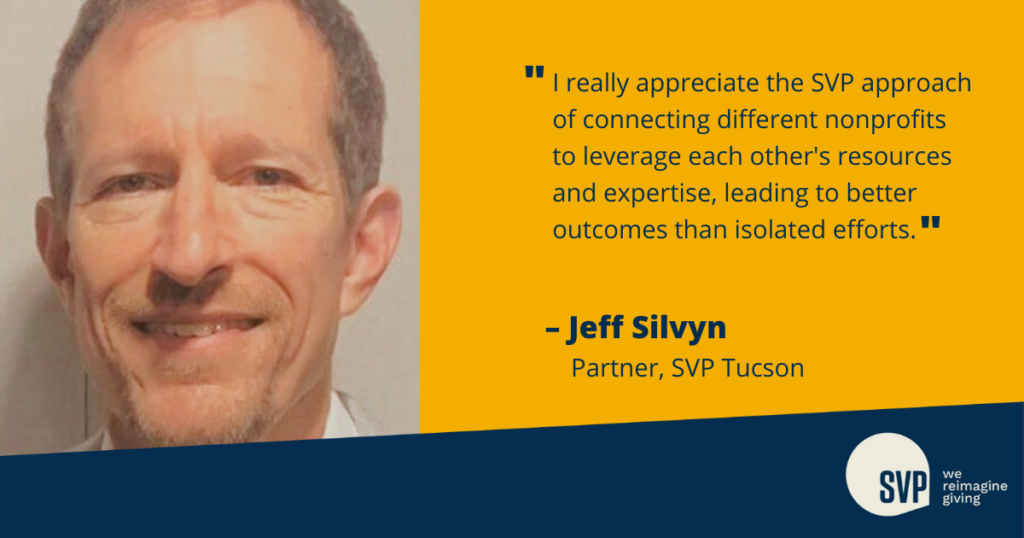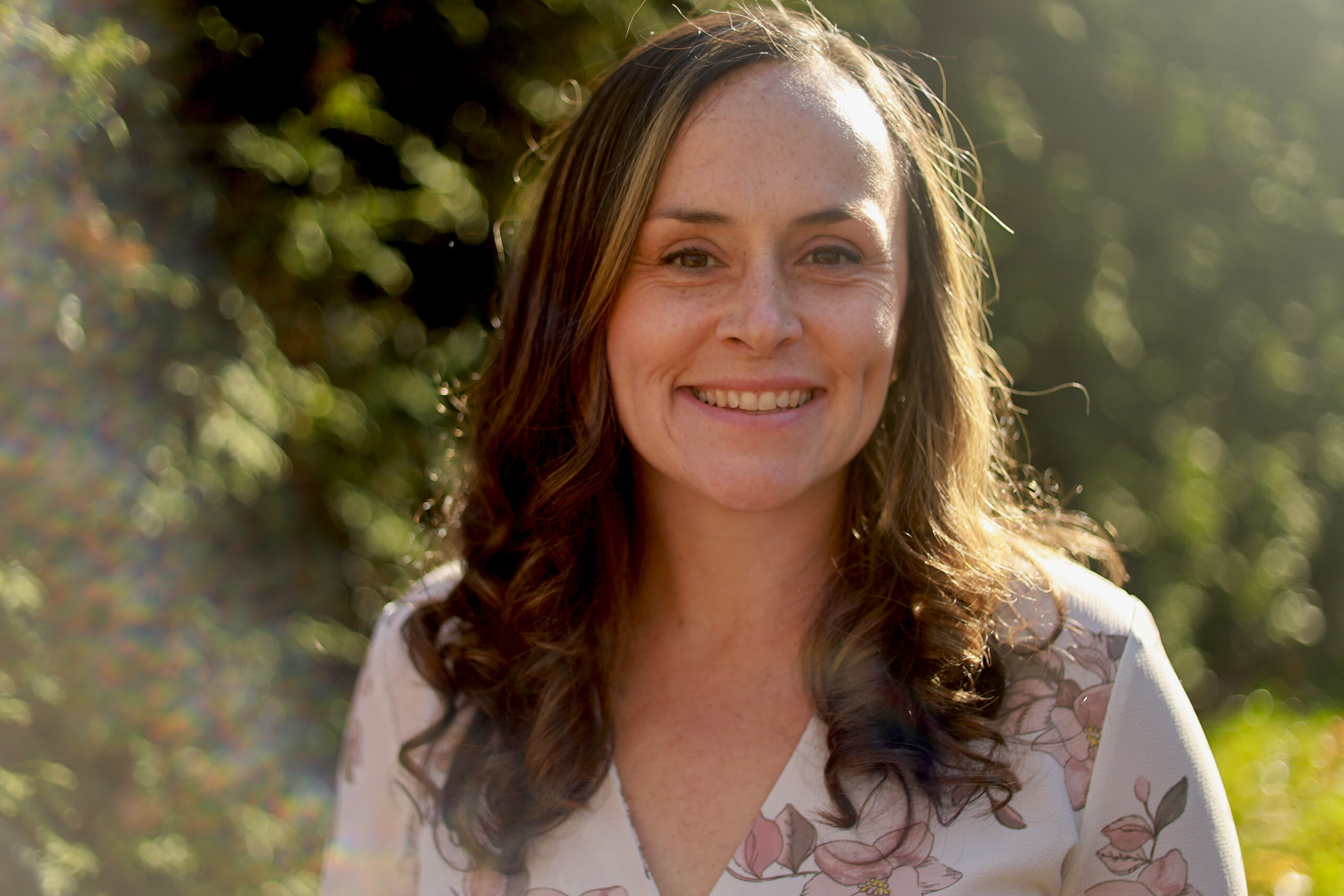Jeff Silvyn, SVP Tucson
Meet Jeff Silvyn, a member of SVP Tucson, along with his wife Keri. We spoke with Jeff, an attorney and general counsel for Pima Community College, to learn more about his philanthropy journey and approach.

How did you first get engaged with SVP?
We were approached several years ago by some folks involved in launching the Tucson chapter who were really involved in getting things up and running. At the time, our kids were pretty young, so we didn’t think we had the bandwidth for the active participation SVP required beyond just writing a check. We’ve tried to instill the importance of community involvement in our kids from a young age by bringing them along to volunteer activities, finding causes they’re passionate about, and providing ways for them to contribute hands-on. As they got older and more self-sufficient, we reconnected with some of the original SVP people we’d spoken with. We appreciate SVP’s approach of networking philanthropists together to collaborate and directly engage with nonprofits to help make them more successful. We had another conversation and got more involved as a family.
What’s been most rewarding about being part of SVP?
I’ve learned a lot from serving on teams that try to support local nonprofits. You have a variety of dialogues happening—with the nonprofit you aim to help and then separate conversations with SVP members to figure out how we can best support their work. It’s very satisfying to know you’re having a real impact because you can actually see firsthand how your support is helping the organizations expand their capacity. I also really appreciate the SVP approach of connecting different nonprofits so they can leverage each other’s resources and expertise, leading to better outcomes than isolated efforts.
What’s something important you’ve learned about the nonprofit sector through SVP?
One universal lesson is that nonprofits of all types and sizes struggle with board governance. It takes constant care and education to have the high-functioning board oversight needed for organizational success. This is true even for groups that seem very mature and well-organized from the outside. Another interesting learning was seeing how nonprofits can actually support each other rather than competing for resources, provided they take a holistic approach to collaboration and meeting community needs. The collective action approach is much more powerful than siloed efforts.
Any guidance for Partners who may not see the results they hoped for on a project?
It’s okay if a project doesn’t fully accomplish everything intended. In one of my first SVP projects, our A-team did good work, and the nonprofit made some progress, but they weren’t ready to make all the changes we thought possible. We closed it without achieving the level of change we aimed for. That’s fine, though. It was still a rewarding experience. SVP members learned from it to be more effective going forward. While not achieving our full vision, it was still valuable. The relationships formed and new perspectives gained through SVP make it worthwhile regardless of project outcomes. It’s about improving as partners over time, not expecting perfection.


